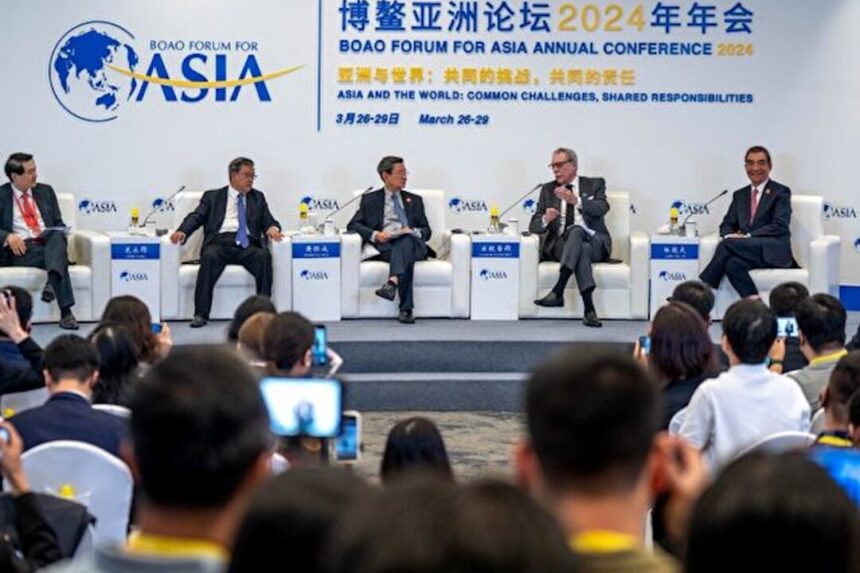Experts have highlighted that the Chinese Communist Party (CCP) itself is posing a threat to peace in Asia, which will have detrimental effects on the economic development of the region and the world. Analysts remain doubtful as the CCP continued to make optimistic statements at The Boao Forum for Asia 2024, which ended on March 29.
Zhao Leji, the head of the CCP’s rubber-stamp legislature, called on Asia to take charge of its own security at the forum to counter the United States’ efforts to bolster alliances between liberal democracies in the region against authoritarian and totalitarian governments. However, experts argue that the CCP has been the one behaving aggressively and endangering peace in Asia, which will negatively impact the region’s economic growth and beyond.
The CCP has been striving to attract foreign investment that has been leaving China since the COVID-19 pandemic. Despite the central government’s implementation of increasingly left-leaning policies, the regime has emphasized its role in the global economic recovery this year by deregulating domestic markets. However, foreign investors continue to express concerns about the CCP’s anti-espionage laws and other restrictions, leading to a decline in foreign direct investment in China.
At the Boao Forum, Mr. Zhao pledged to further open China’s markets to foreign investors and treat foreign-invested enterprises on par with domestic companies. However, analysts view these statements as misleading and doubt their implementation, considering the current challenges facing the Chinese economy.
The CCP’s emphasis on its Global Security Initiative and its attempts to portray China as a champion of world peace have been met with skepticism. The CCP’s military aggression in the South China Sea and around Taiwan has heightened tensions in the region, prompting the United States to strengthen alliances with countries in the Indo-Pacific to counter the CCP’s influence.
Experts warn that the CCP’s focus on geopolitics and internal security at the expense of economic development will have negative consequences for Asia and the world. The regime’s aggressive actions and ambitions pose a threat to peace in the region and challenge the existing global order led by liberal democracies.
In conclusion, the CCP’s policies and actions are viewed as counterproductive to economic growth and stability in Asia, raising concerns among analysts about the future trajectory of the region under the CCP’s leadership.
Source link





